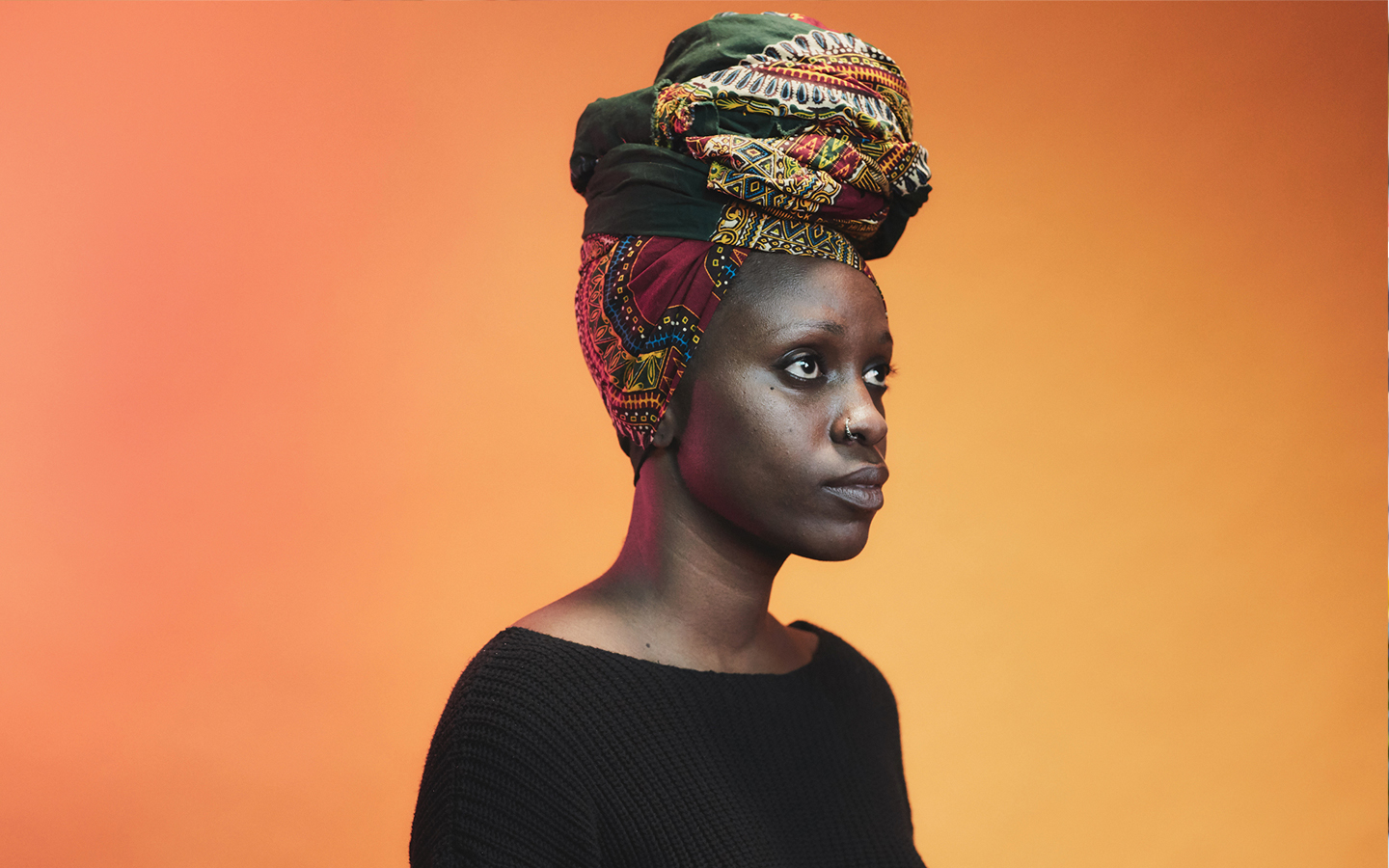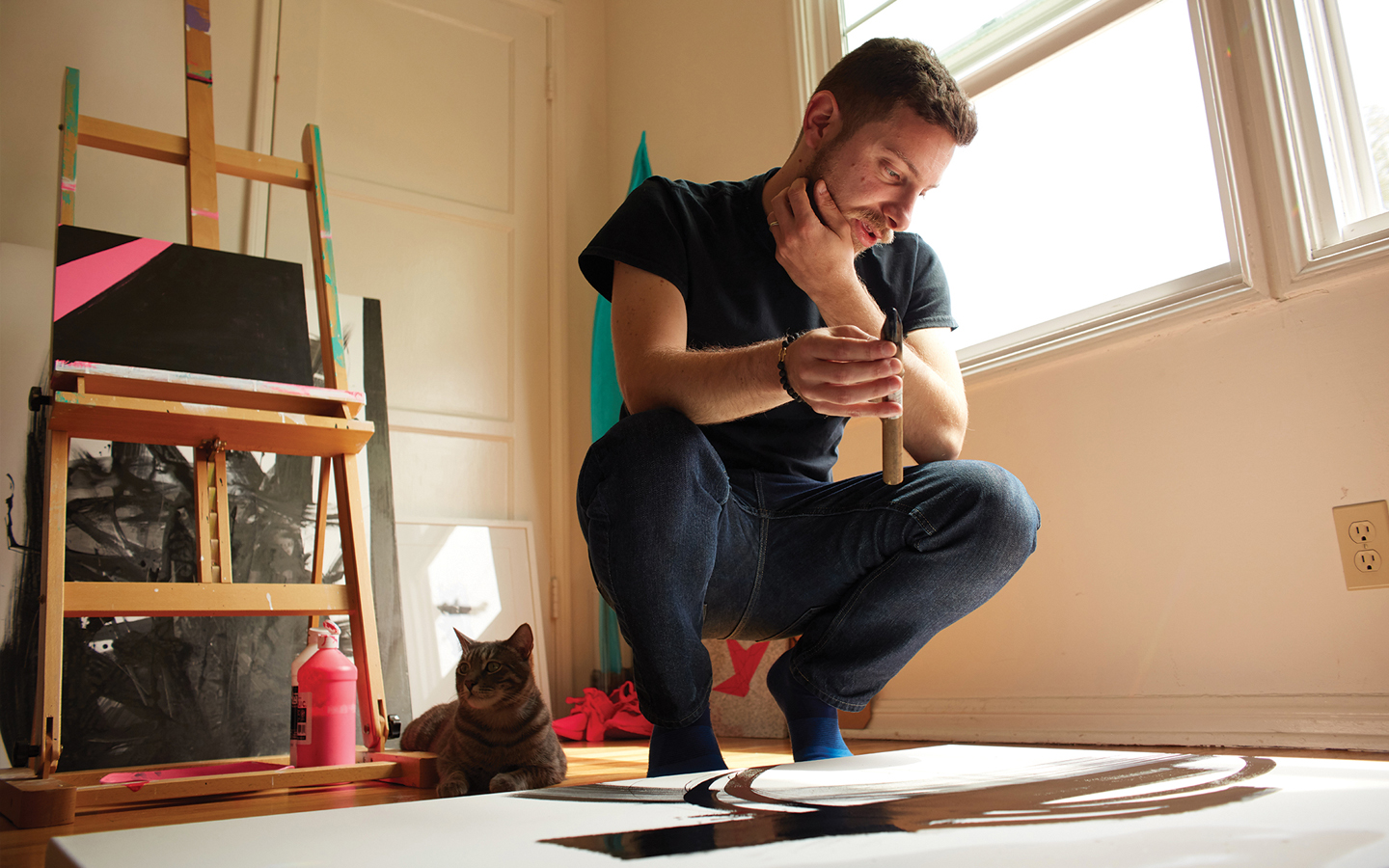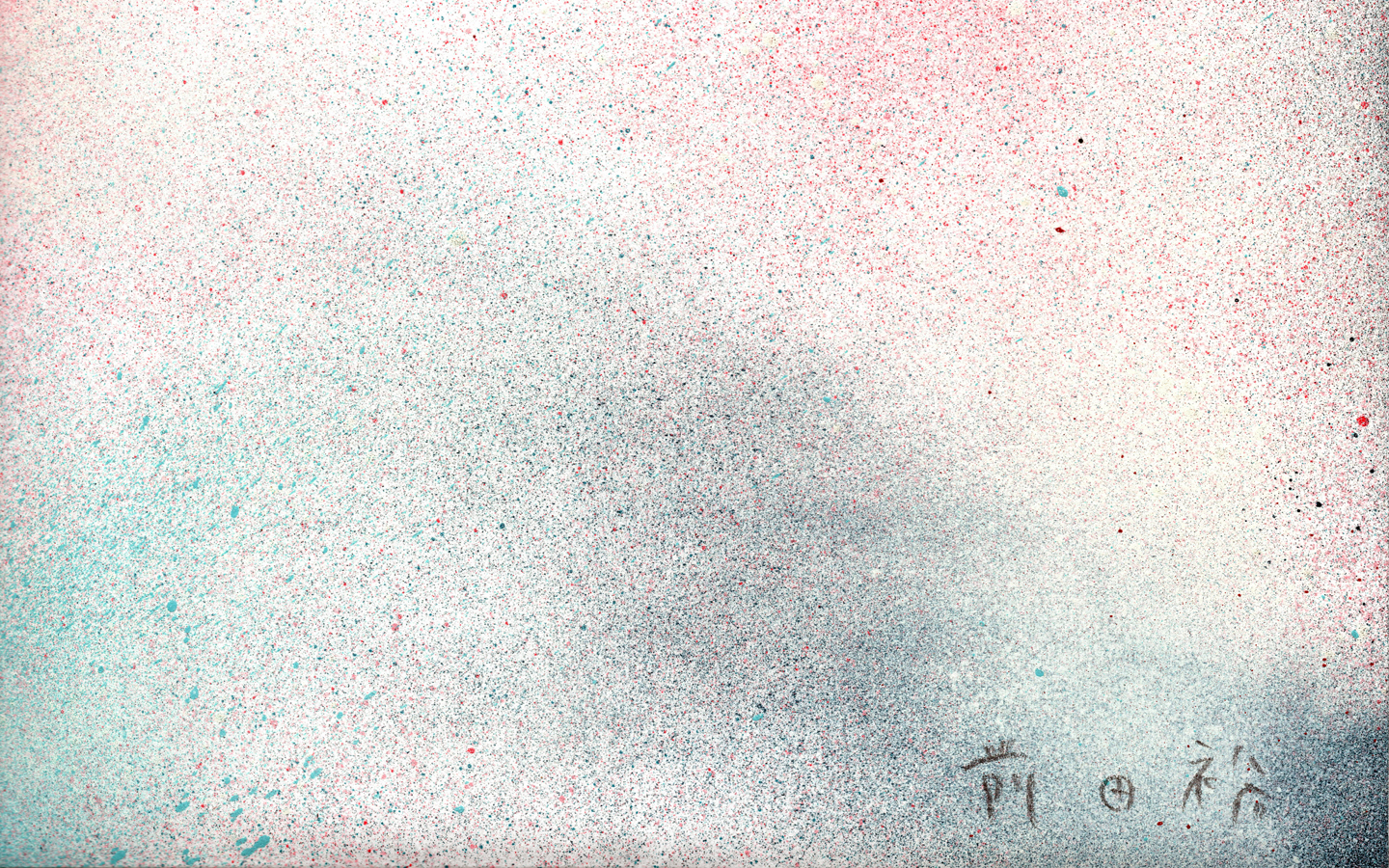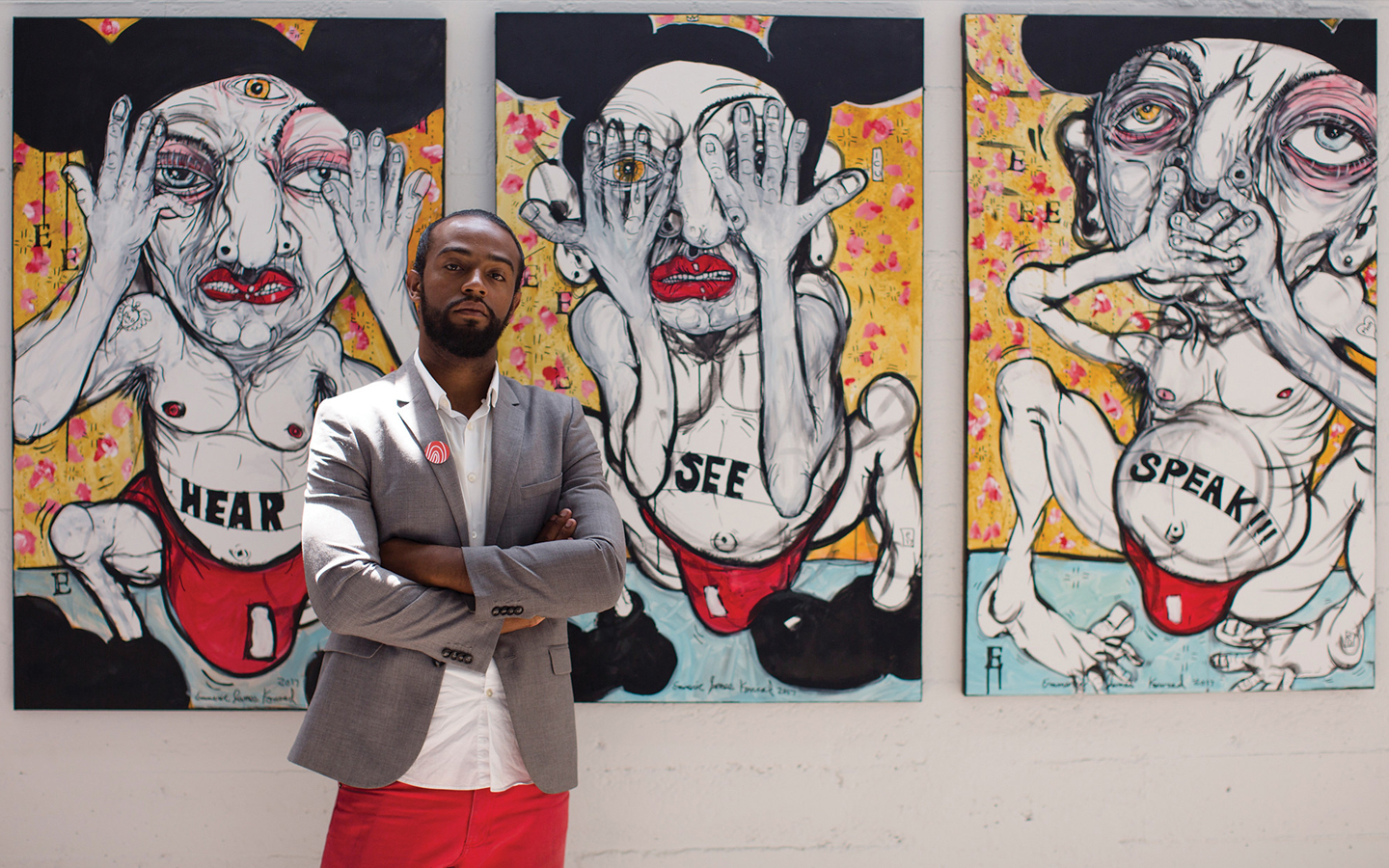
Alyesha Wise
TEXT ALYESHA WISE
VISUAL MEENO
I’ve been called many things that I wasn’t, until I was. I was called a great poet before I knew the definition of enjambment, a teaching artist before I attended my first workshop, a healer when I didn’t know the first step towards healing myself, and an activist – a title I’d argue I still don’t deserve. Yet, here I am, being asked to write a personal piece on the topic of “Revolution.” I assume it’s because of the content in my poems or what the editors see in me – a fight that, I too, once saw within myself.
Perhaps we assume the magic in others for two major reasons. For one, all of us are looking for someone, or something outside of ourselves to believe in. And second, energy is real. We often sense greatness in others before they can even sense it in themselves. This is how extraordinary human beings are pushed towards their fullest potential – not because they are capable, but because someone told them that they believe in their capabilities. I am one of those people. Someone telling me that I was seen as an artist is what led me to show up as an artist, and maybe someday, as a revolutionary.
Ironically, the first person who complimented me as a poet was the same person who I resented the most when my poetry career finally took off. When I sat in the middle of our apartment floor and wrote my first poem, 11-years-old and super-inspired, my mother did what most mothers would do — she told me she liked my poem. I don’t remember her exact words, but I remember her excitement. I remember her smile. It was the reason I wrote a second poem.
I know my mother doesn’t remember my words that day, but I am confident she remembers my excitement, my smile. Still, I wish she could have comprehended the meaning. I wish she had attempted to get to know me well enough to understand and accept that her 11-year-old daughter wasn’t just writing about Blackness, but about the person she’d become – a passionate, complex, and unusual teenager and adult. I wish she could comprehend that her daughter was writing about the things the world refused to give her: an open love of her own skin, an open love with another girl, and the right to exist freely within those types of love.
Growing up a young artist in Camden, New Jersey, between the late 90s and early 2000s, I heard little talk about revolution, and no talk about same-sex relationships. I loved poetry, being Black and the intimacy of street boys and fly, dominant girls. I was a kid of conviction and fight. There wasn’t an ounce of doubt within me about who I was, but it’s hard to describe how it felt to have all of that want but to essentially exist in that want alone.
I found the secret communities who told me “Yes.” These included: the only stable open mic downtown, the stoops where the street boys knew my brother enough to make me a look-out girl, and the queer hangout spot at a homegirl’s house in Centerville, Camden. In these spaces, I felt ok to live against the grain. They helped build my revolutionary heart. When I would return home at night, no one asked me about these spaces. No one asked, “How did you do?” or “Where were you? Who are you? What do you believe in? Are you in love?” There are an endless amount of stories that we, as writers, would give anything to tell. If anyone at home would’ve asked me, if the woman who expressed love for my first poem would’ve asked me, if they had given me a “Yes,” I swear I would have used my voice more. I would have told them all.
A few years later, during my college years, I attended one of my new favorite open mics. I remember finishing my poem and, before exiting the stage I stood there, 21-years-young and ready. I was ready to do what I felt I was called on this planet to do. I stood in front of a mostly black crowd and pleaded with the people in the audience that we travel down to where a black man was unjustifiably murdered by police to protest the killing. Imagine me, the youngest person in the room, pleading, and one of the much older adults responds, “Oh, it’s ok. Al Sharpton and ‘em got that under control!”
I can’t blame his ignorance, his dismissal, or (perhaps) his fear. I can’t blame the other older adults who didn’t say anything, only nodded their heads, yet clapped for my radical poem. I could only blame myself for allowing my rightful anger to lead me to that moment, but not using that same rightful anger to push past that crowd of sleeping adults and do the necessary work. I could only blame myself for allowing that to be the last straw, the day the potential activist in me took a back seat.
It’s why I applaud my current students, today’s black and brown youth who tirelessly protest against gun violence and police brutality. These students are given way more “No’s” than they are “Yes’s.” Their names trend more in death than in protest. Yet they keep going. They are a constant reminder to me that my work is never done. Sadly, I took a back seat many years ago, but I am still on this ride. I know my young people are stronger than I’ve ever been. I know my “Yes” is a fuel to their fire.
Validation is a hell of a drug. No one wants to admit that it exists in art, in revolution, but it does because it exists in humans, the most vulnerable species to ever inhabit this planet. We can receive so much validation, and still feel like we have none, because it didn’t derive from the most desired places.
I’m no longer making any excuses for the potential that has taken me so long to reach, for the revolution in my heart that I’m somewhat afraid to confront. It isn’t my mother’s fault. Though flawed, she’s a very loving woman who only gave my siblings and I what she knew how to give. I can’t blame the rest of my family, and I grew up swarmed by patriarchy, so I never wanted to blame my father.
I blame me, as young as I was. I blame fear. And that’s ok. I am still here. My work is never done – mentoring my fast-growing students and fostering safe spaces for black women and marginalized communities. My work includes donating my time and talents to fight for prison reform. It includes speeches and rallies and places that I couldn’t imagine the voice could reach.
Some may call what I do activism. But when I think of 17-year-old Alyesha, 21-year-old Alyesha, my ancestors, and the Patrisse Cullors of today, I don’t find myself worthy of that title, not yet. Energy is real. And I know what I can currently give. I know what I am climbing back into. I know what I am capable of pushing past tomorrow.
You may also like
Index Issue 2
Engineers who are also video installation artists, musicians who have PhDs in Molecular Chemistry an




